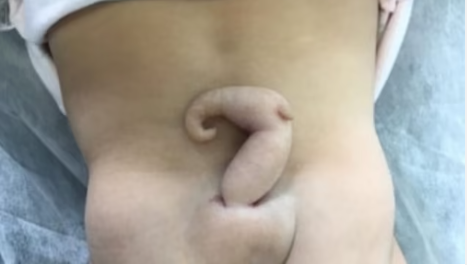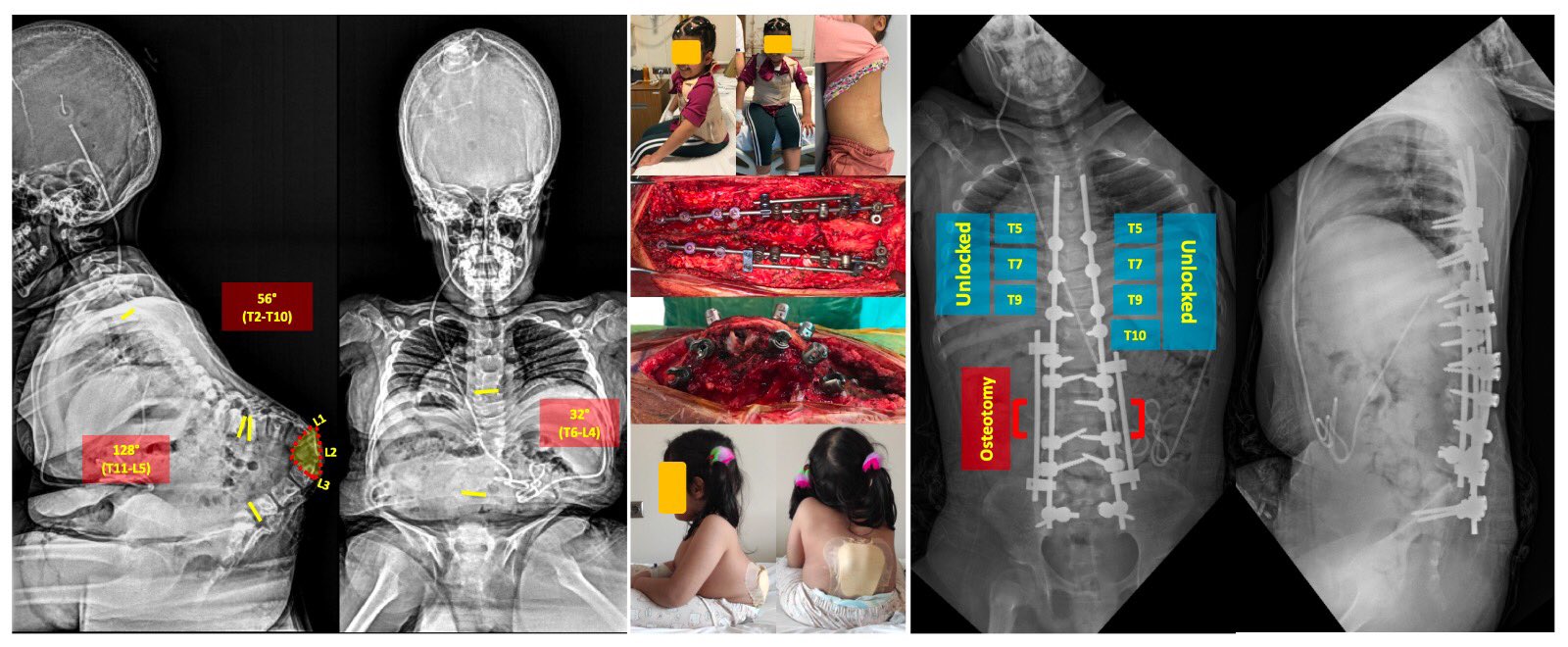A girl born with a 6-cm-long ‘tail’ in Brazil, due to a rare genetic disorder called spina bifida which occurs when the spinal cord doesn’t develop properly, was operated on successfully.
Researchers from the Centre for Fetal and Placental Research in Ohio studied the case alongside Brazilian doctors. In their report, the researchers said the child’s mother had no history of drug use or illness.
Spina bifida is a birth defect that affects the spine and spinal cord. It occurs when the neural tube, which is the structure that forms the baby's brain and spinal cord during fetal development, does not close properly. This can lead to a range of physical and neurological complications.

There are several different types of spina bifida, but the most common is called myelomeningocele, which is also known as open spina bifida. This type of spina bifida occurs when a portion of the spinal cord and nerves protrude through an opening in the spine, creating a sac or cyst on the baby's back. This can cause nerve damage and other complications, including paralysis, loss of sensation, and bowel and bladder problems.

In some cases, spina bifida can be detected during pregnancy through prenatal screening or ultrasound. However, not all cases are detected prenatally, and some babies may not be diagnosed until after birth.
Treatment for spina bifida varies depending on the severity of the condition. In some cases, surgery may be required to repair the opening in the spine and prevent further damage to the spinal cord. Other treatments may include physical therapy, assistive devices, and medications to manage symptoms.

While there is no cure for spina bifida, early detection and treatment can help to minimize the impact of the condition and improve outcomes for affected individuals. Ongoing medical care, including monitoring and management of associated health issues, is typically required throughout the individual's life.
© Vygr Media Private Limited 2022. All Rights Reserved.









